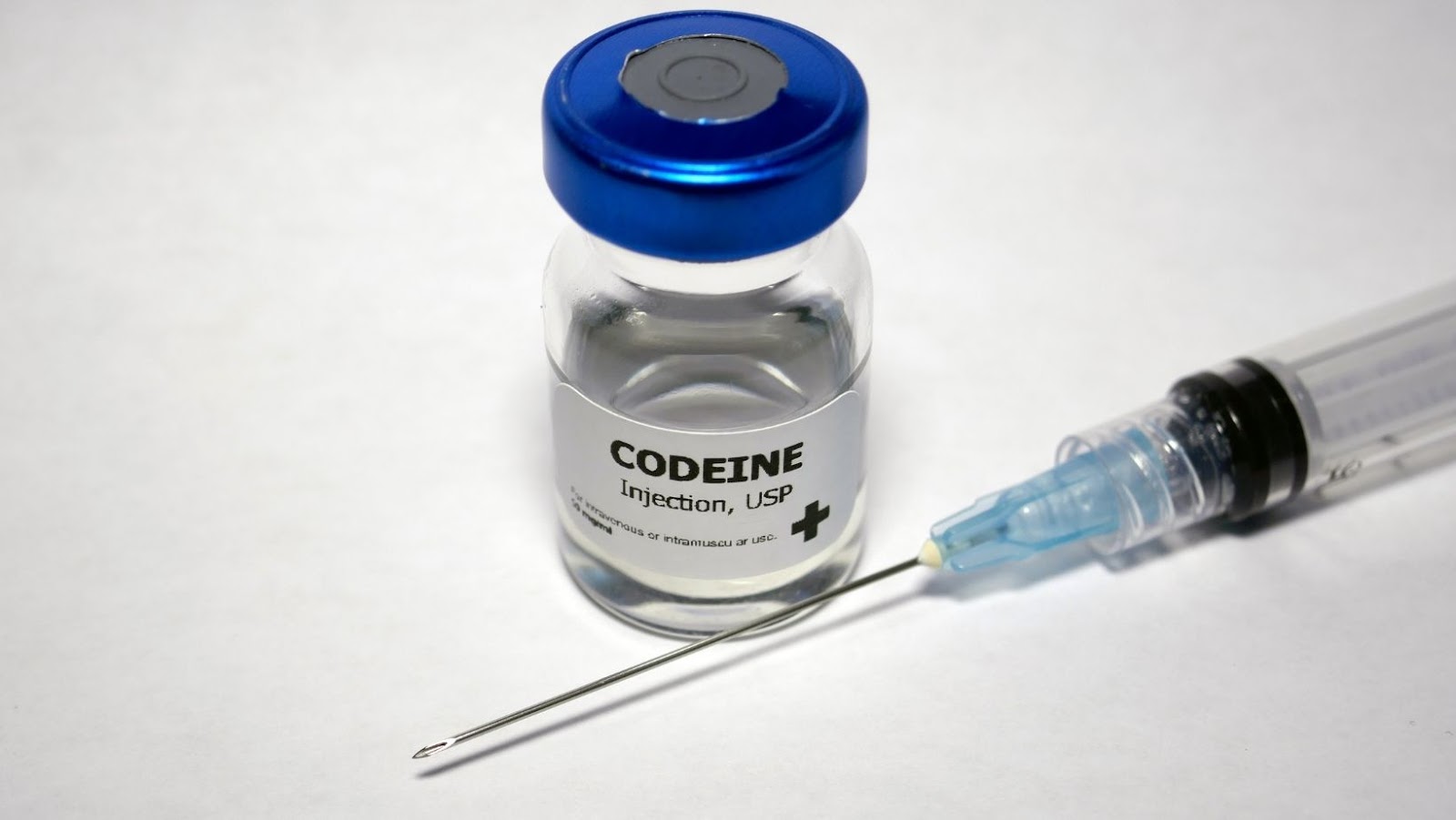
Tylenol with Codeine is a combination drug commonly used to treat pain and fever. It contains a combination of acetaminophen and codeine, a narcotic pain reliever. Tylenol with Codeine is available in tablet and liquid form, and its effects can last up to four hours. When taken properly, Tylenol with Codeine can be an effective pain reliever.
However, there are potential interactions to consider with Tylenol with Codeine. Let’s discuss these interactions in more detail.
What is tylenol with codeine
Tylenol with Codeine is a prescription medication used to treat moderate-to-severe pain. It is a combination of two drugs, acetaminophen and codeine, which work together to reduce pain. Acetaminophen works by reducing the production of prostaglandins in the brain, while codeine works by binding to opioid receptors in the brain and blocking pain signals.
Tylenol with Codeine is available as tablets, capsules, and liquid suspension. It can be taken orally or rectally for fast relief of discomfort. The recommended dosage for adults and children over 12 years old is one tablet (325 mg of acetaminophen/15 mg of codeine phosphate) every 4 hours as needed for pain relief; however, up to 4 tablets can be taken per day (not to exceed 4 g of acetaminophen/60 mg codeine phosphate).
It is important to keep in mind that Tylenol with Codeine should only be used for short-term pain management because it can become habit-forming if taken too frequently or at higher doses than prescribed. Additionally, this medication can interact with other drugs such as alcohol and sedatives which may increase the risk of adverse effects. As such, it is important to consult your healthcare provider before taking Tylenol with Codeine.
What are the active ingredients in Tylenol with Codeine?
Tylenol with Codeine is an opioid pain reliever containing both acetaminophen and codeine. Acetaminophen reduces fever and provides mild-to-moderate relief of various kinds of pain, while codeine is an opioid that acts on the central nervous system to relieve pain and produce a sense of well-being or euphoria.
Tylenol with Codeine contains two active ingredients – acetaminophen (also known as paracetamol) and codeine phosphate. Acetaminophen is used to reduce fever and provide some relief from pain, while codeine works on the CNS to both relieve pain and produce a feeling of contentment. It comes in tablets, capsules, liquid form, oral solution or suspension. The contents vary depending on the dose you take; for example, a 15mg tablet contains 7.5mg of codeine phosphate and 600 mg of acetaminophen.
While this drug combination has a range of uses – such as treating mild-to-moderate acute/chronic pain – it also has potentially dangerous interactions when taken with other prescription medications or alcohol. Therefore, it’s important that you consult your doctor before taking Tylenol with Codeine so they can assess your medical history in order to ensure the medication’s safety and efficacy.
Uses of Tylenol with Codeine
Tylenol with Codeine is an opioid pain medication that is used to relieve moderate to severe pain. It is often prescribed when other pain medications are not effective. It is important to note that Tylenol with Codeine can interact with other medications and has some side effects.
Let’s take a look at how it is used and the possible interactions with other medications:
What is Tylenol with Codeine used for?
Tylenol with codeine is a prescription medication used to relieve moderate to severe pain. It belongs to the group of drugs called opioid analgesics, which work by blocking pain signals sent by the brain to the nervous system.
Tylenol with codeine may be used on its own or in combination with other medications, such as acetaminophen (brand name Tylenol) and ibuprofen, depending on your doctor’s instructions. It can be used for a variety of painful conditions, including
- toothaches
- muscle aches and pains
- headaches
- menstrual cramps
- postoperative pain
Some people even use it for severe forms of arthritis or migraine headaches when traditional medications have not been effective.
When prescribed and taken as directed, Tylenol with codeine is generally safe and effective at relieving moderate to severe pain. However, there are some important safety considerations you should be aware of when taking this medication. It can cause drowsiness or dizziness and should not be taken if you plan on driving or operating machinery. Additionally, it can interact with other medications so it’s important to speak with your doctor about any other drugs you may be taking before using this drug. It’s also important to drink plenty of fluids while taking Tylenol with codeine as it can cause dehydration and dry mouth.
What are the common side effects of Tylenol with Codeine?
Tylenol with Codeine is a combination medicine that’s used to treat moderate to severe pain. It contains an opioid pain reliever (codeine) and a non-opioid pain reliever (acetaminophen).
Common side effects of Tylenol with Codeine include: nausea, vomiting, constipation, dizziness, headache, drowsiness, and upset stomach. Additionally, it can cause blurred vision and difficulty focusing. If any of these effects become bothersome or if they persist or worsen while taking Tylenol with Codeine consult your doctor.
Other serious side effects from taking Tylenol with Codeine can include difficulty breathing due to slowed sleep apnea breathing or allergic reactions including rash hives swelling of the face lips tongue mouth throat. Seek immediate medical attention if you experience these side effects while taking Tylenol with Codeine.
In addition to the above listed symptoms, long term use of codeine containing medications can lead to addiction, abuse and physical dependence even after a short treatment period – in some cases within a few days prescribed doses. Therefore it is important to use caution when taking this medication for extended periods of time as tolerance may quickly develop which could lead to dependence or accidental overdose.
It is very important that you talk regularly with your doctor about the risks and benefits associated with using Tylenol with codeine if administered over a prolonged period of time.
Possible Interactions with Tylenol with Codeine
Tylenol with codeine can be a helpful medication for relieving pain, but it can also be dangerous due to its highly addictive properties. When taking Tylenol with codeine, it is important to be aware of the possible interactions it can have with other medications, as well as the risk of side effects and addiction.
In this article, we’ll discuss the potential interactions and side effects associated with Tylenol with codeine:
What drugs interact with Tylenol with Codeine?
Tylenol with Codeine is a drug that contains an opioid pain reliever (codeine) and a non-opioid pain reliever (acetaminophen). It is used to relieve moderate to severe pain. This type of medication has certain risks and side effects, so it is important to be aware of possible interactions with other drugs, foods, supplements, and laboratory tests while taking Tylenol with Codeine.
You should always inform your doctor and pharmacist if you are taking any other medications or have any conditions or allergies that might increase the risk of unwanted reactions when taking this medication. You should also be alert for signs and symptoms of developing adverse reactions or interactions with other medications.
The following drugs could interact with Tylenol with Codeine:
- Alcohol
- Antihistamines
- Mood stabilisers
- Sleep aids
- Blood thinners
- Diuretics
- Other narcotic medications
- Herbal supplements such as St. John’s Wort, valerian root, kava kava, chamomile, etc.
In addition to these potential interactions listed above between Tylenol with Codeine and other drugs or supplements, Tylenol with Codeine may also cause false results on laboratory tests for urine protein levels. Therefore it is important that any necessary laboratory tests be done before starting this medication and during treatment as adjustments may need to be made in the dosage based on test results.
What other substances can interact with Tylenol with Codeine?
Tylenol with Codeine is a commonly prescribed medication that combines the pain reliever acetaminophen (Tylenol) with the opioid narcotic codeine. It may be used to treat moderate to severe pain, and it can also be found in many cough medicines. When taken as prescribed, Tylenol with Codeine is generally safe. However, there are certain substances with which the medication should not be combined as they can cause dangerous interactions.
Substances known to cause interactions when taken with Tylenol with Codeine include:
- Monoamine oxidase inhibitors (MAOIs)
- Certain sedatives and tranquillisers
- Alcoholic beverages
- Certain opioid medications
- Certain herbal supplements like St. John’s wort
- Anticholinergic drugs (e.g., atropine/scopolamine)
- Chlorpromazine
- Naltrexone
- Aspirin
- Anticonvulsants like phenobarbital
Many of these substances will result in more drowsiness than normal when taken together with Tylenol with Codeine—which can be dangerous—so it’s important for people taking this medication to avoid mixing it with anything listed above or any other substance or prescription drug without consulting a doctor first.
What should you avoid while taking Tylenol with Codeine?
Tylenol with Codeine can interact with other medications and substances, so you should always talk to your doctor before taking this drug. Some drugs and substances that may interact with Tylenol with Codeine include alcohol, certain antibiotics, barbiturates, antifungals, sedatives, muscle relaxants, opioid pain relievers, sleep medications, seizure medications, depression medications and antihistamines.
Alcohol can increase the risk of developing side effects from codeine such as drowsiness, confusion or difficulty breathing. Alcohol also increases the risk of becoming addicted to codeine or having an overdose if taken in large amounts. It is important not to drink alcohol while taking this medication.
Certain antibiotics such as erythromycin and rifampin can also interfere with how Tylenol with Codeine works in the body. Barbiturates can increase the effects of Tylenol with Codeine and are not recommended for use at the same time. Antifungals such as fluconazole should be used cautiously when combined with this medication as they may decrease its effectiveness. Sedatives may also increase the effects of Tylenol with Codeine and cause drowsiness or slowed breathing.
Muscle relaxants like cyclobenzaprine should not be used in combination with this medication due to a potentially dangerous interaction where they could suppress breathing. Prescription opioid pain relievers such as oxycodone can increase the risk for a dangerous drug interaction when mixed together along Tylenol with Codeine and should not be used together or closely monitored by a doctor if it is necessary to take both simultaneously for medical reasons.
Sleep medications such as zolpidem may increase sedative effects if taken in conjunction with each other pose risks for an overdose if taken together without medical supervision Sleep supplements containing diphenhydramine disorder sedation commonly reported side effect when these meds are taken together weight loss medications (when unsupervised). Certain seizure medications opioids like fentanyl or hydrocodone medical supervision are needed if they have opioid dependence or allergies. Depression treatment like SSRIs serotonin syndrome (carried serious consequences) when combined too will be tylenol/. Antihistamines benadryl/diphenhydramine sedation more powerful doxepin most histamines impaired motor coordination/causing addiction.
It is important to inform your doctor about any drugs you are currently taking before starting Tylenol-Codeine combination therapy as interactions between these substances could lead to serious side effects or even life-threatening situations. Be sure to follow your doctor’s instructions exactly when taking this medication so that you minimise your chance of experiencing an unwanted reaction due to a drug interaction between two different compounds you have consumed simultaneously.
Precautions when Taking Tylenol with Codeine
Tylenol with Codeine is an opioid analgesic medication used to treat various pain conditions. While this medication can be very effective, it is important to note that it must be used with caution. There are many possible interactions with Tylenol with Codeine that should be considered before taking the medication.
In this article, we will look at the different precautions to take when taking Tylenol with Codeine:
What are the possible risks of taking Tylenol with Codeine?
Tylenol with Codeine is a pain reliever used to treat moderate to severe pain. It contains a combination of codeine and acetaminophen, which work together to reduce your pain. Tylenol with Codeine can be habit forming if taken in large doses or for longer than the recommended period of time. It is important to understand that there are potential risks and possible side effects associated with taking Tylenol with Codeine so you can make an informed decision regarding the use of this drug.
Taking too much Tylenol with Codeine, either by accident or on purpose, can have serious side effects, such as nausea, vomiting, lightheadedness, confusion, drowsiness and even unconsciousness. If you take more than the recommended dose at any time, you should seek emergency medical help immediately.
Tylenol with Codeine may also interact negatively with other medications or substances you are taking at the same time. Before taking Tylenol with Codeine it is important to speak to your healthcare provider about any other medications or supplements that you are currently taking in order to ensure there will not be a problem when taken together. Alcohol also interferes and diminishes the effectiveness of this drug so it should not be combined when taking this medication. Additionally pregnant women should not take Tylenol with Codeine as it can cross the placenta and potentially cause harm to the foetus— unless specifically prescribed by a doctor for extreme pain control measures.
It’s always important to read and follow the instructions provided on your medication’s label carefully before using – if in doubt read it again! Taking more than directed could put your health at risk and lead to more serious problems later on down the line; therefore it’s best practice to consult your medical professional whenever considering use of antidepressants such as tylenol-with-codeine before beginning current medication routine and during treatment (if needed).
Are there any special precautions to take when taking Tylenol with Codeine?
Tylenol with Codeine is a combination pain reliever containing an opioid (codeine) and acetaminophen. It is used for the relief of moderate to severe pain.
When taken for long periods of time or in high doses, there are certain safety precautions you should take to reduce the risks associated with the medication.
To maximise benefit and minimise risks associated with Tylenol with Codeine, it is important to use this medication correctly:
- Take only as directed by your doctor or according to the package instructions; do not exceed prescribed dose or duration of treatment without consulting your doctor first.
- Do not drink alcohol while taking Tylenol with Codeine as it can increase sedation, mental clouding and risk of serotonin syndrome.
- Be aware that Tylenol with Codeine can interact with other medications you are taking, be sure to tell your doctor about any medications you are currently taking, including nonprescription drugs, herbal supplements and other prescription pain medicines such as Vicodin® (hydrocodone) or OxyContin® (oxycodone).
- Let your doctor know if you have medical problems such as liver disease or kidney disease as this may impact how much Tylenol with Codeine you need.
- Be mindful that taking more than the prescribed dose of Tylenol with Codeine may increase risk of liver injury in some individuals; ask your pharmacist about how much acetaminophen is in each dose and the maximum amount allowed per day before multiplying doses.
- Talk to your doctor if you find yourself having difficulty stopping use of this medication; opioid dependence can occur when using long-term opioids like codeine for prolonged periods of time and should be managed appropriately by a healthcare professional who specialises in addiction medicine and pain management.
What should you tell your doctor before taking Tylenol with Codeine?
When considering taking Tylenol with Codeine—a pain relief medicine containing codeine and acetaminophen—it’s very important to speak with your doctor beforehand. Before you start any medication, make sure that your doctor is aware of all other medications you may be taking, including non-prescription drugs, vitamins, and herbal supplements.
Your doctor must be informed if you have any of the following conditions before deciding if Tylenol with Codeine is appropriate for your particular situation:
- current or recent history of substance abuse or addiction
- moderate to severe kidney disease
- intestinal blockage or slow digestion
- difficulty passing urine caused by enlarged prostate gland
- a head injury or brain tumour
- history of adverse reaction to aspirin or other NSAIDs (non-steroidal anti-inflammatory drugs) such as ibuprofen and naproxen
- any mental health illness such as depression and/or suicidal thoughts
- asthma or breathing problems such as COPD (Chronic Obstructive Pulmonary Disease)
Before taking Tylenol with Codeine, also make sure that your doctor is aware of any allergies you have to medications and other substances. Do not take more than recommended doses because doing so can increase the risk for an overdose. Taking more than what is prescribed by your doctor can cause harm including the possibility of developing serious side effects that are potentially life threatening. Tell your doctor immediately if any strange symptoms arise when managing your pain with this drug.













